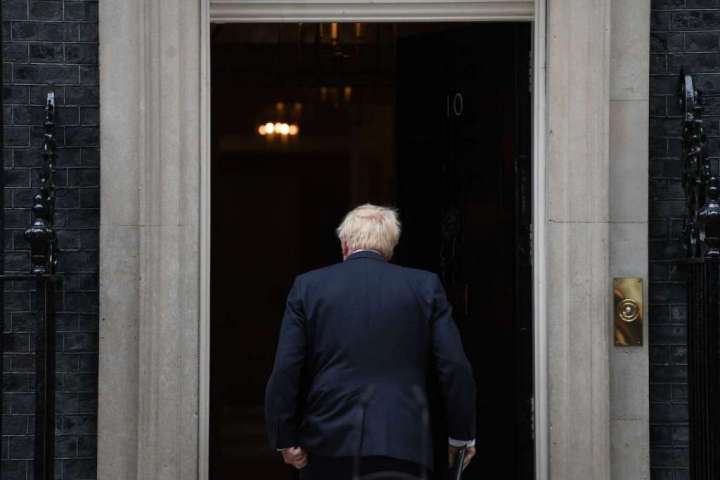British Prime Minister Boris Johnson’s resignation from office sets off a race among Conservatives to find his successor. That person will have to solve a problem that is bedeviling conservative leaders worldwide: How can the party build a durable conservative-populist alliance?
Where do British Conservatives go from here?

That political order is being undone. Much as Democrats in the United States are winning more votes in well-off suburbs, the opposition Labour Party and the center-left Liberal Democrats have been gaining among the upper classes in Britain. This is partly due to the Brexit debate, which pushed even educated voters to the left, and working-class voters — who had been moving rightward for more than a decade — to the right. Johnson’s massive victory in 2019 rested on an inverted pyramid of success: For the first time in modern history, the Tories did best with the least advantaged Britons.
This is the demographic basis of the populist-conservative alliance. Populist working-class voters want protection from the economic and cultural shocks of the modern world. Conservative voters want to protect traditional values in both economics and culture. In some areas — opposition to “woke” ideology, for example — the two sentiments overlap. In others, they clash.
Follow Henry Olsen‘s opinions
FollowEconomics will be a big flash point in this unavoidable conflict. Many traditional Conservatives, for example, backed Brexit to usher in a low-tax, free-trade nirvana — what some called a “Singapore on the Thames.” But the former Labour-voting working classes viewed Brexit as protection against the ravages of free trade and an immigration regime that left them behind. Old blue Conservatives are inclined, like Johnson himself, to lean right economically and a bit to the left culturally. The party’s new voters want the exact opposite.
Johnson’s successor will have to finish the task of solidifying this coalition. As British political scientist Matthew Goodwin points out, there is no going back to the pre-Brexit Conservative Party. Attempting to restore that bygone era is doomed to fail; instead, Tories will have to seriously think through and flesh out what the new conservatism stands for and means.
This will require a new paradigm on economics above all else. The question is no longer about high taxes vs. low taxes; it is right taxes vs. wrong taxes. It’s not a matter of government being bad and the private sector being good; it’s a matter of justice and dignity for all, achieved through a mixture of private and public action that has typified modern economies since the 1930s.
A politically successful new conservative-populist model must meet two basic tests: First, it must show working-class voters that they matter, meaning the next prime minister must lean against the traditional party values and embrace the values of the Conservative Party’s new voters.
Former Swedish prime minister Fredrik Reinfeldt is the example to avoid. He tried to create a conservative workers party between 2006 and 2014, but he ultimately failed because he backed less restrictive immigration policies and insulted his conservative Moderate Party’s new working-class voters in doing so. Sweden now has a strong working-class populist party, the Sweden Democrats, who are roughly as big as the Moderates. Britain’s Conservatives cannot risk that happening to them.
Conservatives must also ensure that all boats are lifted by rising economic tides. This can come in the form of investing in worker productivity through education, restricting mass immigration to ensure there is a tight labor market at home or a host of other measures. The key is understanding that just as all politics are local, all politics are personal. It doesn’t matter how much national GDP is growing if the gains are all accruing to certain people in specific regions.
British and U.S. politics often move in similar directions at the same time. Just as Bill Clinton presaged Tony Blair and Brexit presaged Donald Trump, Johnson’s replacement will likely become the model for the next Republican presidential nominee. Whether it is a positive example or one to be avoided remains to be seen.






